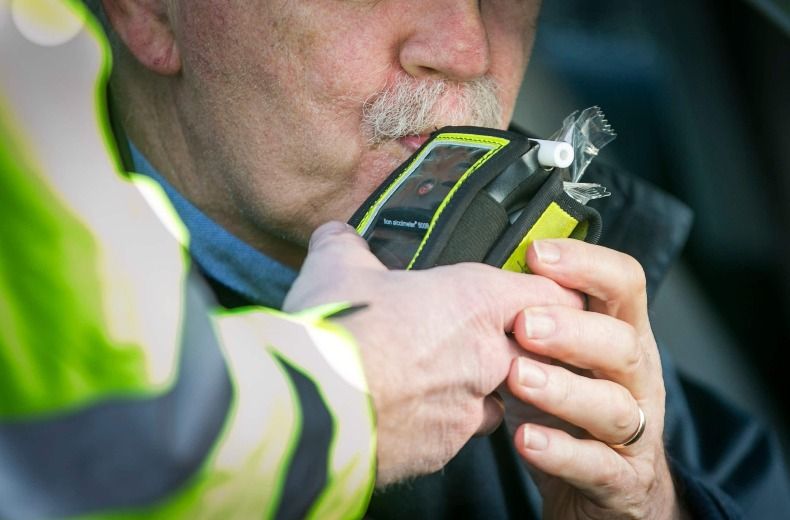Four-in-10 motorists (38%) believe harsher sentences are the answer to curbing instances of drink-driving which were responsible for the deaths of some 300 people in 2022.**
Drivers questioned for the RAC Report on Motoring 2024 were able to choose the three most effective of eight options to tackle drink-driving. Reducing the blood-alcohol limit for driving to zero was the second most popular with 34% of drivers opting for that, although this was only marginally ahead of the next three options.
A third of drivers (33%) supported giving the police new powers to immediately disqualify drink-drivers at the roadside. Currently, only courts can impose bans, meaning after being stopped by a police officer, a drink-driver could continue to drive until their court appearance.
This was an idea put forward by Chief Constable Jo Shiner, the National Police Chiefs’ Council (NPCC) lead for roads policing, earlier this year. Chief Constable Shiner said these powers would mean the police could “immediately take that risk off the road”.
The idea that convicted drink-drivers should have alcohol interlocks (‘alcolocks’) fitted to their vehicles to prevent them driving if they have any alcohol in their systems was favoured by 32% of those questioned by the RAC, while a similar proportion (31%) wanted to see an increase in roadside breathalyser testing.
The RAC’s research also found the proportion of motorists who admit to drink-driving in the past 12 months has increased slightly, from 7% in 2023 to 8% this year. But this is well below the 19% which was recorded before the pandemic in both 2018 and 2019.
Levels of admitted drug-driving remain very low – despite road fatality figures indicating a rise in cases where drug-drivers were involved.***
Only 2% of drivers say they have driven after taking drugs – legal or illegal – that could negatively affect their performance at the wheel.
Almost two-thirds of all drivers (64%) support tougher sentencing for drug-drivers, while 56% would like to see greater levels of roadside testing. Just under half (49%) want the police to be able to immediately disqualify drug-drivers at the roadside.
RAC road safety spokesman Rod Dennis said: “It’s clear motorists want to see something done differently to tackle the scourge of drink-driving which is still responsible for the loss of far too many lives every year.
“Shockingly, government data shows we’re back to a similar rate of fatalities caused by people drinking and driving as we were in the late 1980s and that a significant number of drink-drive offences are committed by reoffenders.
“As well as support for immediate roadside bans and tougher sentences, our research reveals there is considerable backing from drivers for fitting alcolocks which stop someone over the limit from starting a car. Those who have been convicted of drink-driving need to be prevented from being able to reoffend. Enforcement is also key as drivers need to know there is a good chance of being caught if they decide to drive after drinking too much.
“The idea of reducing the legal drink-drive limit – an idea supported by a third of drivers we surveyed – may not alone be the answer. Road casualty data for Scotland, which reduced its drink-drive limit to a lower level than the rest of the UK 10 years ago (5 December 2014), suggests it hasn’t cut the percentage of casualties in alcohol-related collisions.
“We hope the issue of drink-driving will be addressed in the Government’s soon-to-be-published road safety strategy as clamping down on it in the right way could save hundreds of lives every year.”
Chief Constable Jo Shiner, National Police Chiefs’ Council lead for roads policing, said: “In policing we see the damaging impact of drink and drug driving all too often and every fatality or serious injury which happens as a consequence of this is completely avoidable.
“The message of our national Christmas drink and drug driving campaign, Op Limit, is that it will not be tolerated. Alongside our current powers, we will also continue to make the case for more effective legislation which enables faster interim disqualifications for those who fail roadside tests. This will remove risk from our roads and reduce the number of people who are killed or seriously injured by those who are repeatedly criminally irresponsible. If someone has made the decision to drive under the influence of drink or drugs, we must be able to take swift and robust action to stop them doing so again.
“Driving under the influence of drink or drugs puts everyone at risk – individuals, families, businesses and whole communities. Together we must do everything we can to put a stop to this irresponsible and incredibly dangerous behaviour.”

Complete peace of mind for less
• Cheaper than AA Price Promise or your money back^
• We get to most breakdowns in 60 mins or less
• Our patrols fix 4/5 breakdowns on the spot

* Research conducted with 2,691 drivers by Online95 for the RAC Report on Motoring 2024. Only those who hold a full, current UK driving licence, drive at least once a month and have a motor vehicle in their household took part. Responses were rim-weighted to be nationally representative of UK motorists in age, gender, socio-economic groups and all UK regions. Effective sample size 1,925 drivers.
** https://www.gov.uk/government/statistics/reported-road-casualties-in-great-britain-involving-illegal-alcohol-levels-2022/reported-road-casualties-in-great-britain-involving-illegal-alcohol-levels-2022
*** 134 fatalities on UK roads in 2023 where ‘Driver or Rider impaired by drugs (illicit or medicinal)’ was listed as a contributory factor, up from 97 in 2022 and 55 in 2014. Source: Department for Transport








